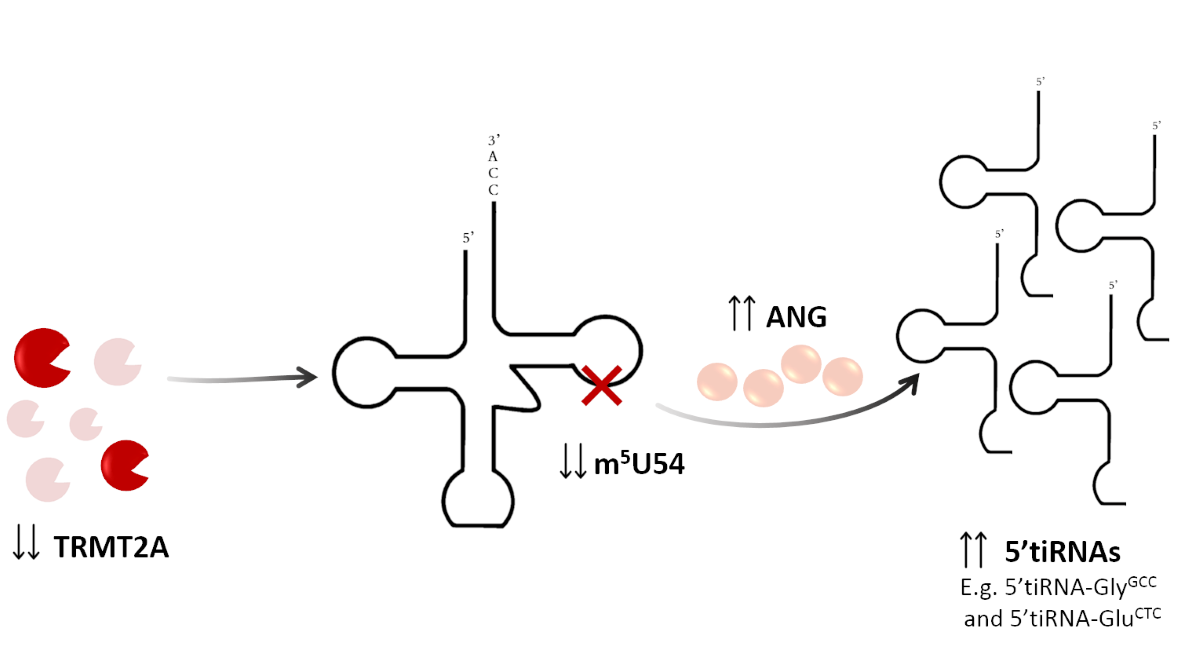Transfer RNA (tRNA) molecules contain various post-transcriptional modifications that are crucial for tRNA stability, translation efficiency, and fidelity. Besides their canonical roles in translation, tRNAs also originate tRNA-derived small RNAs (tsRNAs), a class of small non-coding RNAs with regulatory functions ranging from translation regulation to gene expression control and cellular stress response. Recent evidence indicates that tsRNAs are also modified, however, the impact of tRNA epitranscriptome deregulation on tsRNAs generation is only now beginning to be uncovered. The 5-methyluridine (m5U) modification at position 54 of cytosolic tRNAs is one of the most common and conserved tRNA modifications among species. The tRNA methyltransferase TRMT2A catalyzes this modification, but its biological role remains mostly unexplored. Here, we show that TRMT2A knockdown in human cells induces m5U54 tRNA hypomodification, resulting in angiogenin (ANG) dependent tsRNA formation. More specifically, m5U54 hypomodification is followed by ANG overexpression and tRNA cleavage near the anticodon, resulting in accumulation of 5’tRNA-derived stress-induced RNAs (5’tiRNAs), in particular 5’tiRNA-GlyGCC and 5’tiRNA-GluCTC. Additionally, transcriptomic analysis confirms that down-regulation of TRMT2A and consequently m5U54 hypomodification impacts the cellular stress response and RNA stability, which is often correlated with tsRNA generation. Accordingly, exposure to oxidative stress conditions induces TRMT2A down-regulation and tsRNA formation in mammalian cells. These results establish a link between tRNA demethylation and ANG-dependent tsRNAs formation and unravel m5U54 as a tRNA cleavage protective mark.

